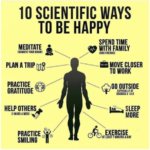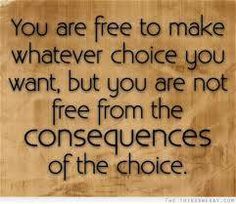I now realize that being angry, frustrated, sad, guilty, afraid, scared, annoyed, disappointed, discouraged, apathetic—the laundry list goes on—simply has not been good for my well-being. It can make me lash out at those who may or may not be responsible for these feelings. Generally it makes me very unapproachable… people walk wide circles around me.
I find that after failing to attain some personal metrics (weight, running speed, income, etc.), I easily lump those unmet expectations together and decide that I’m not satisfied.
Perhaps like me you’ve always considered the words “happy” and “satisfied” to be interchangeable. Well, I’ve discovered that I no longer want them to be.
Goals, we’re taught, are measurable. “You can’t manage what you can’t measure” is an old saying from my early business days. And for the most part I find that accurate. I think we need goals to push us to greater (measurable) levels of performance, productivity, and (if we’re in business) profitability. If we work to support our families and our lifestyles, then goals help us to put one foot in front of the other and improve the quality of life for those for whom we’re responsible.
Goals, almost by definition, create expectations. “I think I can. I think I can,” says our “little engine that could” as we learn to grit our teeth and push for exceeding our expectations. And when we don’t meet these goals, well, we can exhibit a litany of emotions that I just now believe are not beneficial to my well-being.
I can certainly see how some equate satisfaction with happiness. And I’ve written about this often in the past 12 years. If I’m going to use those words interchangeably, as actual synonyms, though, I need another word that describes my state when I’m at peace, feeling blessed, quiet, joyful, contented, present, and needing nothing more. And I haven’t been able to find that word.
So I’ve decided to split my “happy” from my “satisfied.” They mean two different things based on how I apply them.
I can be satisfied or dissatisfied based on some expected outcome. I ran the time I expected. The St. Louis Blues won again. I achieved my ideal weight by the expected date. We all have these outcomes, and we can all be satisfied or dissatisfied depending on how our expectations turned out.
Sometimes we have control over these measurable outcomes and sometimes we don’t. Either way they can leave us feeling satisfied or dissatisfied. And we could say happy or unhappy. I’ve chosen not to.
I can still feel blessed, and content, and joyful when I realize that my expectation (on which I base my satisfaction) is miniscule compared to other factors of my life (like health, relationships, personal calm, etc.). Perhaps it’s simply a matter of perspective.
And you’ll notice I’ve used the term “decided” above. It’s a choice: a decision to take charge of my personal lexicon to describe my emotions.
In my world, I create reasons to be satisfied or dissatisfied all the time. I place them in that competition by mentally establishing some expectation and then measuring what actually happened against that expectation. In this way I actually create the formula for becoming satisfied or dissatisfied.
I’m always creating these benchmarks. I suspect you are too. They are our invention. We create them, and then we acquire the emotion automatically when they work out or they don’t.
We’ve all seen pictures of village kids in some extremely poor third-world country playing soccer with a ball that isn’t holding air on a dirty, trash-strewn surface. They’re laughing and joyful, and giddy: they’re happy. Given they have a lot of things to be dissatisfied over (lack of food, health, water, etc.) they are simply happy in the face of all they lack.
If that’s the case, then I’ve decided I can be both dissatisfied and happy. Yeah, like when the Blues lost their potential record-breaking 10th consecutive home game Wednesday night, I still feel blessed to live in such a sports rich town!
I can also be satisfied and happy, obviously. Easy. In this case I probably don’t think about whether they should be mutually exclusive.
I also believe I can be satisfied and unhappy. (I know many “successful” business people who perhaps have met many goals but would not describe themselves as blessed, at peace, etc.).
I can also be dissatisfied and unhappy.
And what I do about this last one is my choice. I probably can’t do much about the unmet expectation that leave me dissatisfied. I can, however, decide or “choose” to be happy when I list my personal reasons for joy and blessing and peace.
Satisfaction is a condition. Happiness is a choice.
And I’ve decided I want to be happy.





Of all the Offering Meditations I’ve given and heard during worship, my favorite is: “Get rich quick. Count your blessings” which I once read on a church sign.
P.S. In your search for a word to describe inner peace, I recently came across a word that fits: tranquility.
P.P.S. And Kim, please don’t retire from what you are doing to make this world a better place. Thanks for all the wisdom and joy.
P.P.P.S. The only people who cannot decide to be happy are people with mental illness. Had I never experienced the loss of control of my own mind, thoughts, emotions, speech, I never would have believed such a thing even is possible.
Thanks, Rev. Doris….sorry I didn’t find this ’til just now…..I’m a little too…”old school” I guess! Appreciate your comments.
And good to BE seen~!
Rally on, Good Sir!